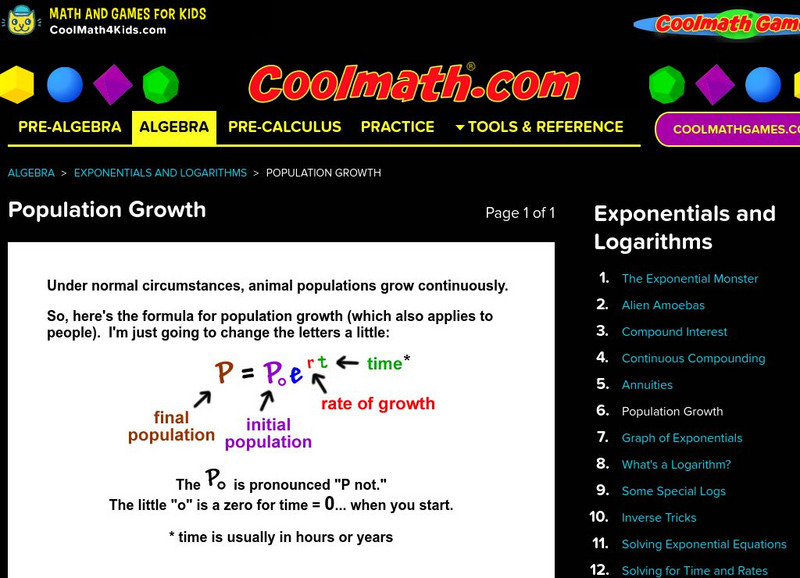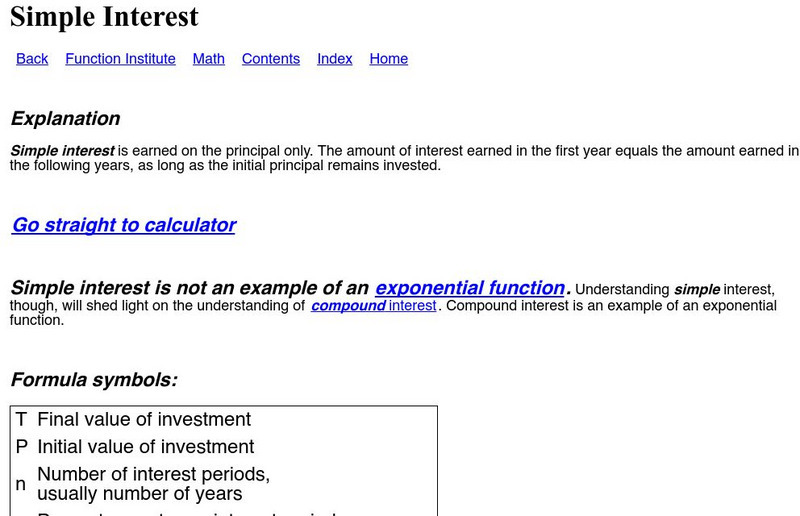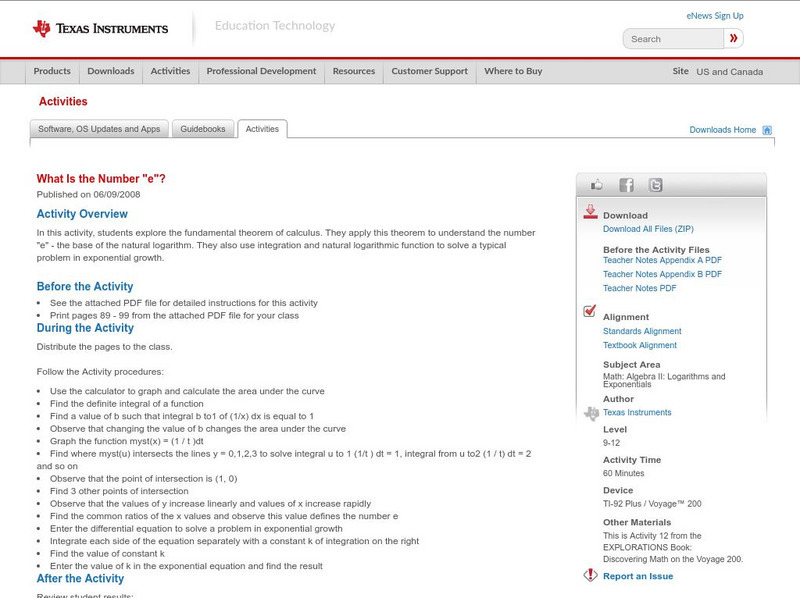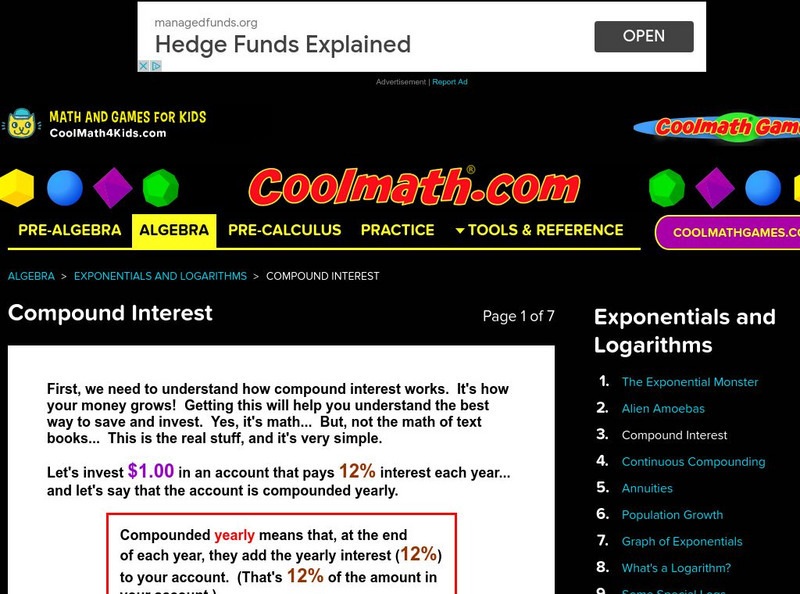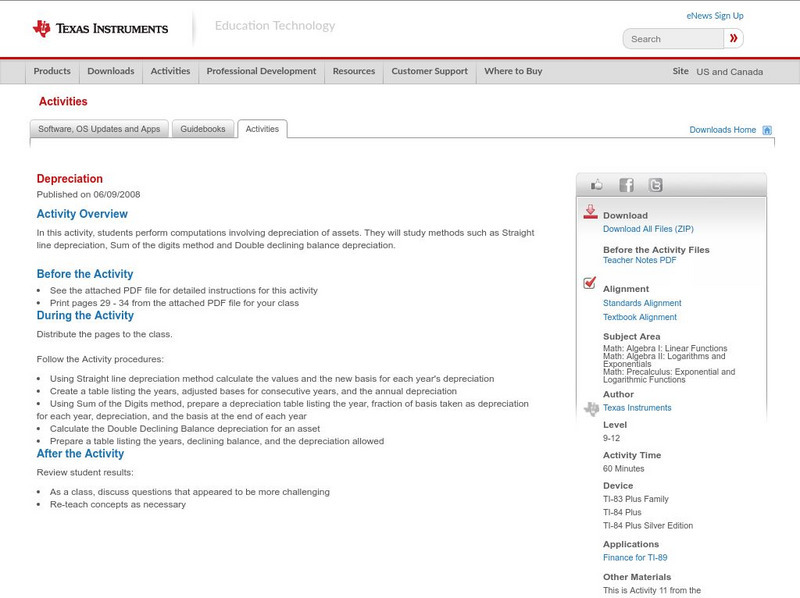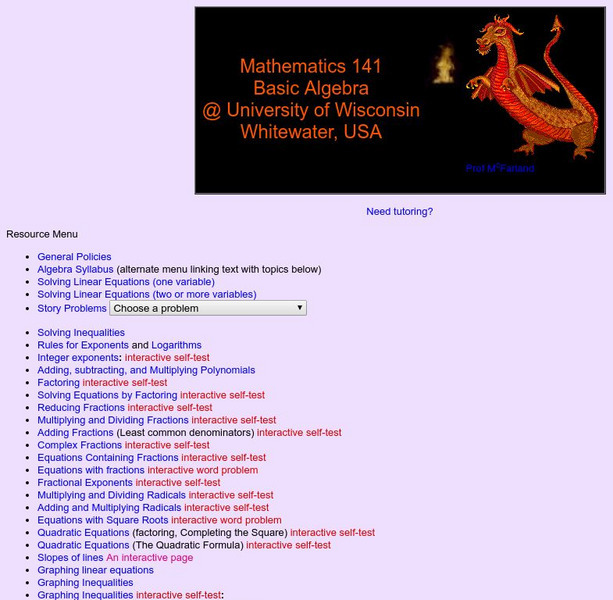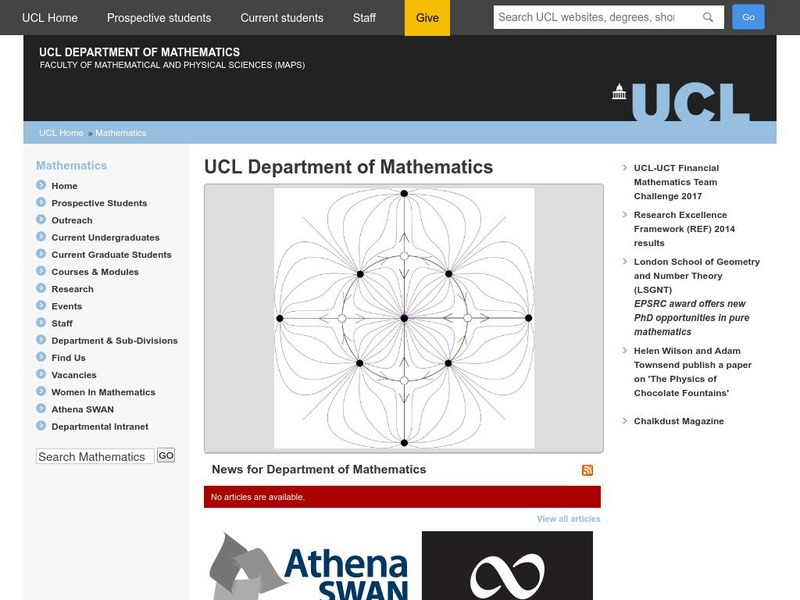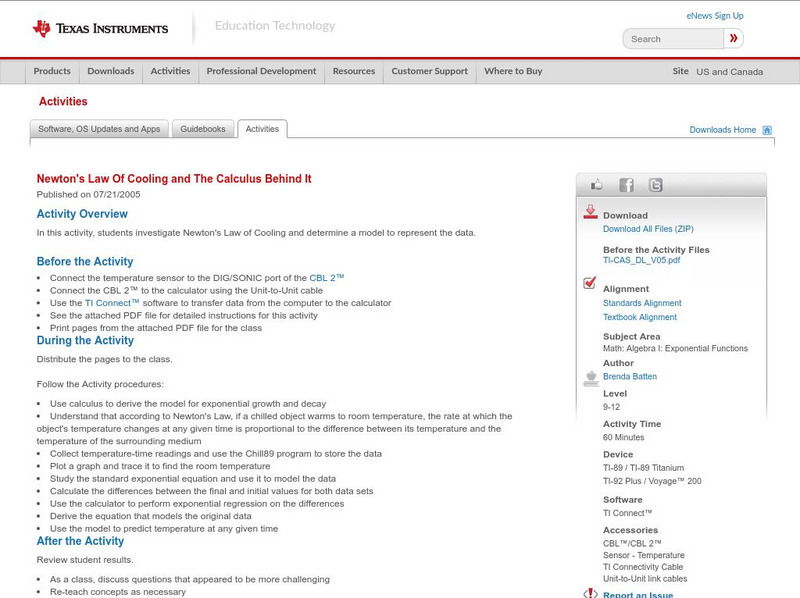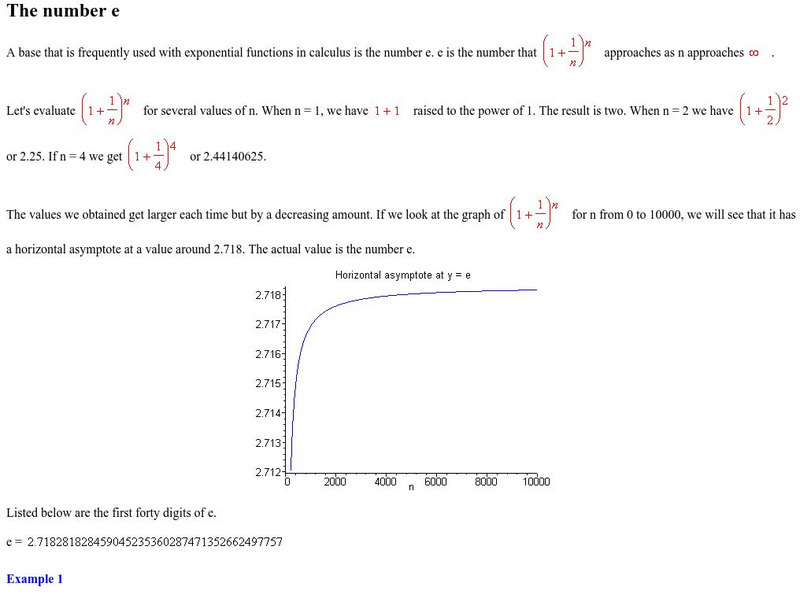Hi, what do you want to do?
Cool Math
Coolmath: Population Growth
Explanation and examples for solving population growth problems.
Texas A&M University
The Rule of 72 for Compound Interest
This rule from Texas A&M will help you with your financial planning.
Ministry of Education and Universities of the Region of Murcia (Spain)
Ministerio De Educacion Y Ciencia: Estudio Del Crecimiento De Una Funcion
Learn with these interactive exercises the concepts of growth and decay of a function and analyze the concepts with elementary functions.
Texas Instruments
Texas Instruments: Growth and Decay Formulas
In this question set, students use exponential growth and decay functions to solve problems about compound interest, population growth, investments, and half-life. Solutions and explanations are provided for these problems.
Cool Math
Coolmath: Radioactive Decay 3
This Algebra Cruncher generates an endless number of practice problems for radioactive decay -- with hints and solutions!
Texas Instruments
Texas Instruments: What Is the Number "E"?
In this activity, students explore the fundamental theorem of calculus. They apply this theorem to understand the number "e" - the base of the natural logarithm. They also use integration and natural logarithmic function to solve a...
Cool Math
Coolmath: Radioactive Decay 1
This Algebra Cruncher generates an endless number of practice problems for radioactive decay -- with solutions! Find how much will be left after a given amount of time.
Cool Math
Coolmath: Radioactive Decay 2
This Algebra Cruncher generates an endless number of practice problems for radioactive decay -- with hints and solutions! Find the half-life.
Cool Math
Coolmath: Compound Interest
This algebra lesson explains how compound interest works and where the formula comes from.
Math Medics
S.o.s. Math: Calculus
This lesson has links to the various topics dealing with calculus. The student just needs to find the topic then click to go to it.
TED Talks
Ted: Ted Ed: Logarithms Explained
This animated video explores logarithms and explains how they are used in chemistry. Get the basics on these critical mathematical functions -- and discover why smart use of logarithms can determine whether your eyes turn red at the...
Texas Instruments
Texas Instruments: Depreciation
In this activity, students perform computations involving depreciation of assets. They will study methods such as straight line depreciation, sum of the digits method and double declining balance depreciation.
Texas Instruments
Texas Instruments: From Tables to Graphs
Students learn how to generate a table of values showing the accumulated amounts of a sum of money compounded over n periods. They graph these values and learn how to determine the accumulated amount corresponding to any given period.
University of California
University of California: Integrals and the Natural Log
This site explains the natural log and its integral. Includes examples.
Other
Brown Math: It's the Law Too the Laws of Logarithms
The laws of logarithms (which flow directly out of the laws of exponents) are discussed here. Combining logs with the same base and the Change of Base Formula are also explained in straightforward language for the reader.
Other
University of Wisconsin: Basic Algebra
This college site offers a variety of problems and answers. Problems are divided into topic areas for easy access. Also offers quizzes with each topic.
University College London
University College London: Hyperbolic Table of Contents
This is a good site from the University College London with links to the various sections on hyperbolics.
Other
Humboldt State University: Natural Logarithm
Wonderful natural logarithm site from the Humboldt State University with example problems.
Texas Instruments
Texas Instruments: Newton's Law of Cooling and the Calculus Behind It
In this activity, students investigate Newton's Law of Cooling and determine a model to represent the data.
Texas Instruments
Texas Instruments: Glencoe Algebra 1: Graphing Calculator Investigation Curve
Students will make scatter plots and find the appropriate regression equations that best fit the data.
Texas Instruments
Texas Instruments: Sequence of Bounces
In this activity, students will explore the rebound heights of a ball and develop a sequence that will predict the rebound height of subsequent bounces. They will also find the total distance that the ball travels.
Anne Arundel Community College
Anne Arundel Community College: Math 131: The Number E
The tutorial examines the number e. Students learn about the mathematics concept through examples with detailed solutions.





